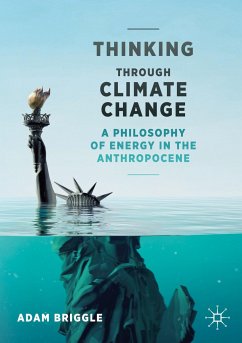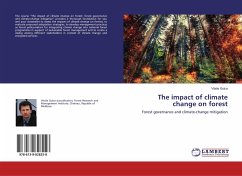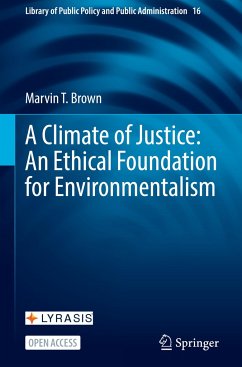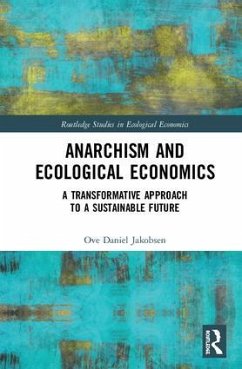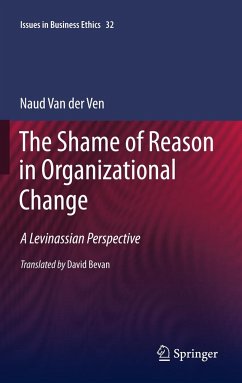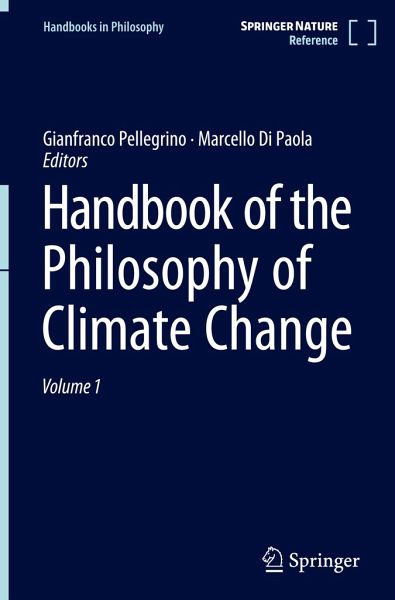
Handbook of the Philosophy of Climate Change
Versandkostenfrei!
Versandfertig in 1-2 Wochen
382,99 €
inkl. MwSt.

PAYBACK Punkte
191 °P sammeln!
This Handbook offers a broad yet unified treatment of many philosophical issues connected with climate change, ranging from foundational puzzles to detailed applications. It extends to many branches of philosophy that are relevant to the understanding of the premises and implications of the impacts of climate change on human and nonhuman life on Earth. More specifically, the handbook examines the scientific accounts of climate change as well as its causes. It explores the tools offered by social sciences and humanities to study the societal premises and impacts of climate change as well as del...
This Handbook offers a broad yet unified treatment of many philosophical issues connected with climate change, ranging from foundational puzzles to detailed applications. It extends to many branches of philosophy that are relevant to the understanding of the premises and implications of the impacts of climate change on human and nonhuman life on Earth. More specifically, the handbook examines the scientific accounts of climate change as well as its causes. It explores the tools offered by social sciences and humanities to study the societal premises and impacts of climate change as well as delving deeper into the ethical and political issues connected with and resulting from climate change. By doing so, it puts it all in an ecological and historical context. In addition, the book offers solutions to some important philosophical puzzles and problems, and indicates paths of interaction between philosophy and other disciplines.
The discussion about climate change andthe mitigation/adaptation policies spans many areas and levels - from abstract science and philosophy to current on-the-ground politics. However, climate change is also a great a philosophical puzzle. Indeed, its existential and practical relevance can be thought to largely derive from the philosophical complications it engenders. Climate change is applied philosophy par excellence. Preventing dangerous anthropogenic climate change needs very good philosophy applied to concrete and specific practical issues. Climate change is an area where scholars from very different provenances should cooperate on equal terms, having in view a common, and really important, purpose - contribute to preventing great burdens and even the extinction of humankind and the destruction of hospitable and valuable non-human nature.
The discussion about climate change andthe mitigation/adaptation policies spans many areas and levels - from abstract science and philosophy to current on-the-ground politics. However, climate change is also a great a philosophical puzzle. Indeed, its existential and practical relevance can be thought to largely derive from the philosophical complications it engenders. Climate change is applied philosophy par excellence. Preventing dangerous anthropogenic climate change needs very good philosophy applied to concrete and specific practical issues. Climate change is an area where scholars from very different provenances should cooperate on equal terms, having in view a common, and really important, purpose - contribute to preventing great burdens and even the extinction of humankind and the destruction of hospitable and valuable non-human nature.



